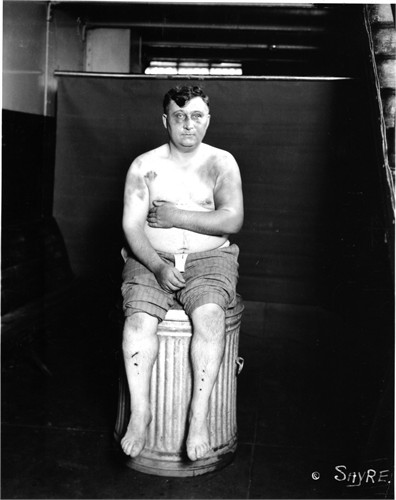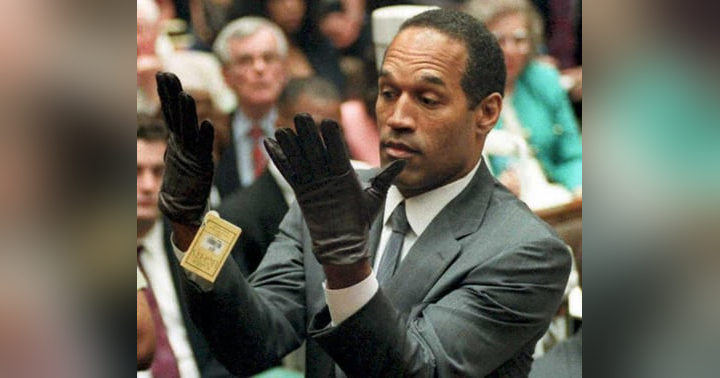The True Story of The Bluebeard Killer

A New Name, a New Country, and the Birth of Harry Powers
The Great Depression didn’t exactly come with a warning label. One minute, people were building futures. The next, they were broke, hungry, and hanging on by a thread. And while most folks tried to survive with what little they had, one man saw an opportunity to climb out of poverty using other people as his ladder.
His name was Harm Drenth.
Born in the Netherlands in 1892, he immigrated to the U.S. with his parents in 1910, landing in Cedar Rapids, Iowa. His family settled into the local Dutch community, living quietly and minding their business. But Harm wanted more than quiet. He wanted out.
He threw himself into learning English and got good at it. By the time he served in World War I, he sounded like any other American kid. When he came back, he reintroduced himself as Harry Powers. The quiet immigrant son had vanished, replaced by a guy who claimed to be a successful oil stock promoter from Oklahoma. He wasn’t. But pretending paid better.
In 1927, now in his thirties, Harry responded to a lonely hearts ad from a woman named Luella Strother. She owned her own farm and a grocery store, which, to Harry, might as well have been a jackpot. They got married, and that’s when it clicked.
He’d tried making money the honest way. He’d even dabbled in making it dishonestly. But marrying a woman with money? That was clean, simple, and legally binding.
And during a time when half the country was barely scraping by, Harry Powers decided that love letters were the new con game. He just needed enough desperate people to believe he was worth trusting.
Lonely Hearts and a Lying Husband: How Harry Powers Hunted for His Next Victim
By the time the Great Depression tightened its grip, the world had already been through a war. And it left behind a wave of women who had lost their husbands to the battlefield. These were women suddenly expected to raise families alone, with whatever their late partners left behind.
Some had land. Some had a little money. All of them had the same thing Harry Powers was looking for: vulnerability.
Still married to Luella, Harry started moonlighting as several other men. He wrote back to lonely hearts ads in newspapers and even ran a few of his own. One of them shouted in all caps, just in case desperation wasn’t loud enough:
WEALTHY WIDOWER WORTH 150,000 DOLLARS
A VERY FINE LOOKING MAN OF 38…
He claimed he was too busy with “business enterprises” to make friends, but was looking for a faithful woman who’d enjoy his ten-room house, her own car, and more spending money than she’d know what to do with.
None of it was real.
His wife, Luella, was alive and still very much married to him. That house? Didn’t exist. What he did have was a garage he’d converted into a private hideout behind her grocery store. That was his office, his workshop, and as we’ll later find out, something far worse.
His fake ads pulled in women at a steady pace. Many were war widows with children and no financial safety net. So when someone offered them food, shelter, and a second chance, it was easy to believe the fantasy. Harry reportedly got between ten and twenty letters a day.
One of those letters came from Asta Eicher in Park Ridge, Illinois.
Asta was a widow with three kids. Unlike many others, she still had a little financial stability, but she was carrying the weight of it all alone. When Harry, using the name Cornelius Orvin Pierson, started writing her, he said all the right things. The timing, the tone, the promises. She wanted someone to help carry the load.
She had no idea she was walking into the hands of someone who only wanted to take more.
Vanishing Acts: A Mother Disappears, Then So Do Her Children
When Harry, now going by Cornelius Orvin Pierson, showed up at Asta Eicher’s door in Park Ridge, Illinois, he didn’t set off any alarms. He seemed polite, charming, maybe even a little awkward. But Asta liked him. Enough, apparently, to agree to go away with him on a trip and leave her three children behind.
That was a big decision. But she’d written home to say things with Cornelius were serious. She wanted her children to join them soon. So when Cornelius came back about a week later—alone—no one panicked. He said Asta had everything arranged and the kids should pack up their things. They were going to be a family again.
He handed over a check from Asta and sent one of the kids to the bank to clean out her account. But the bank teller took one look at the signature and paused. It didn’t match any of Asta’s previous checks. They flagged it and sent the child back with nothing.
Cornelius didn’t wait around. He gathered up the kids and left, telling neighbors they were off to Europe. Just like that, the entire Eicher family disappeared. No calls. No postcards. No return.
While that was happening in Illinois, over in Massachusetts, another woman named Dorothy Pressler was packing for what she thought was her future. She had met a charming man through a lonely hearts ad. They were engaged. And he’d asked her to withdraw $4,000 before the wedding. She did.
She then moved to West Virginia to be with her new husband. No one ever heard from her again.
By the summer of 1931, nearly a year after that forged check stunt at the bank, Harry Powers returned to the Eicher home. This time, he wasn’t charming. He wasn’t pretending to court anyone. He was there to clean it out.
And that’s when people finally started to pay attention.
Discovery, Outrage, and the End of Harry Powers
It took a while, but eventually people started connecting the dots. A family had vanished. A strange man came and went. And suddenly, neighbors who’d brushed it off were asking real questions.
Once the police stepped in, they found a stack of letters between Asta and the man she knew as Cornelius. That trail led them straight to a garage behind a grocery store in West Virginia, where Harry Powers still lived with Luella.
He hadn’t exactly covered his tracks.
Inside that four-room garage, investigators walked into what can only be described as a crime scene frozen in chaos. Bloody clothing. Clumps of hair. And a child-sized bloody footprint stamped into the floor.
Word got out fast. Crowds showed up. The chaos spilled out into the streets.
Then a local kid came forward. He told police he’d helped Harry dig a ditch in the backyard not long ago. That’s where they found the bodies of Asta Eicher, her three children, and Dorothy Pressler.
Asta and her daughters had been strangled. Her son had been beaten with a hammer. Dorothy was also strangled, and the belt used to kill her was still around her neck.
When police searched Harry’s car, they found hundreds of letters from other women. Each one a potential victim.
The press gave him a nickname. “The Bluebeard Killer.” Borrowed from an old folktale about a man who killed his wives.
But this wasn’t folklore. It was real.
And the timing made it hit even harder. People were already struggling to feed their families and trust their futures. Then this man comes along, preying on grief and loneliness for his own gain. The public was furious.
Not long after his arrest, Harry conveniently “fell down the stairs” and ended up with two black eyes. His home turned into a sideshow attraction. Promoters actually built a six-foot-high fence around the garage and the burial site and charged admission.
That lasted one night.
Roughly 200 people rushed the scene and set the garage on fire.
A week later, nearly 5,000 people surrounded the jail where Harry was being held. They wanted him. Not for justice. For revenge. The police had to use tear gas and fire hoses to break it up, and Harry was quietly transferred to a more secure state prison.
His trial didn’t calm anyone down. It only lasted five days, but the crowd was so large they had to hold it in a local opera house. Witnesses took the stand, connecting Harry to the victims and their personal belongings. It was enough.
He was sentenced to death.
The following spring, Harry Powers walked to the gallows dressed to the nines. Dark pinstripe suit. White shirt. Black tie. Cool as ever. He declined to make a final statement. The guard placed the hood over his head, pulled the lever, and that was it.
He hung there for eleven minutes before he was declared dead.













